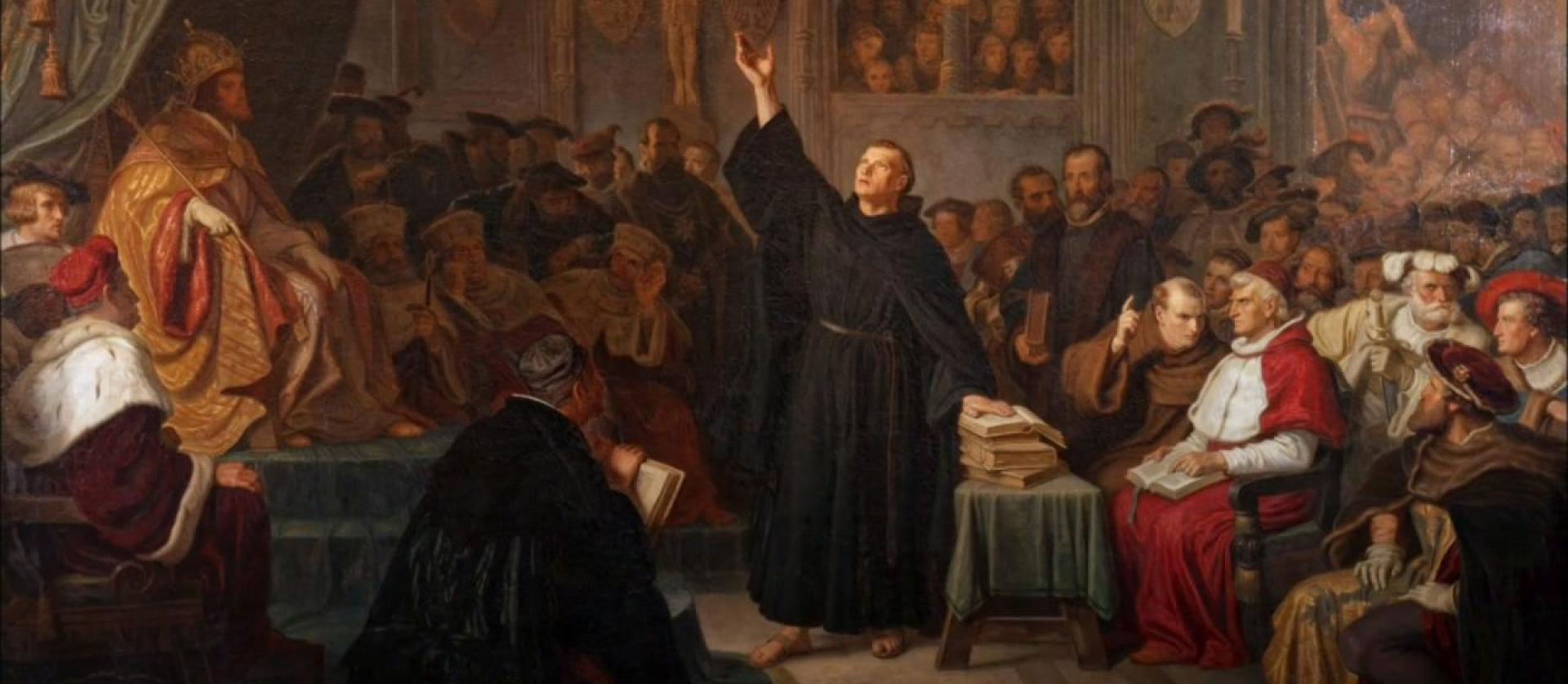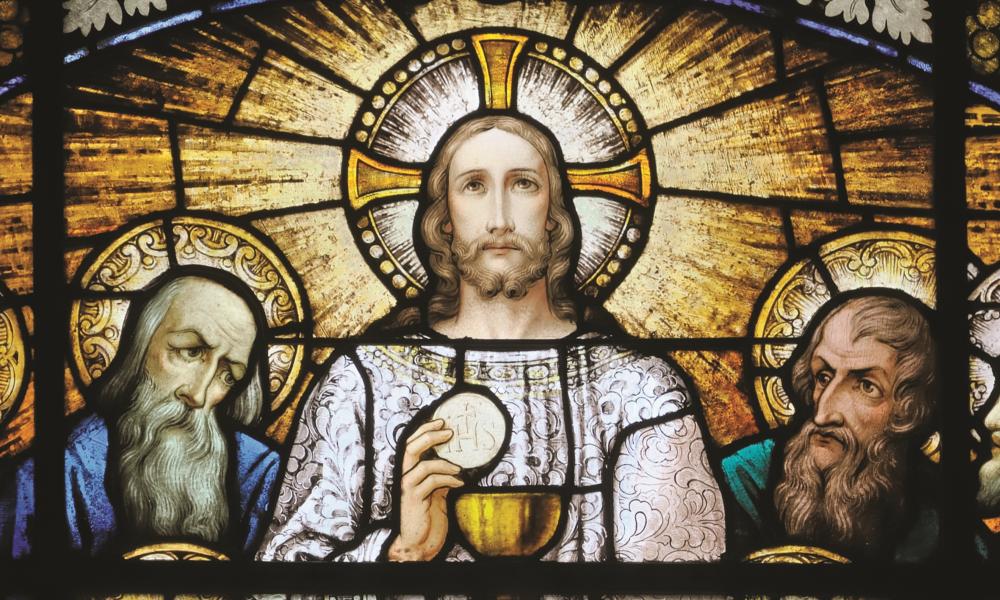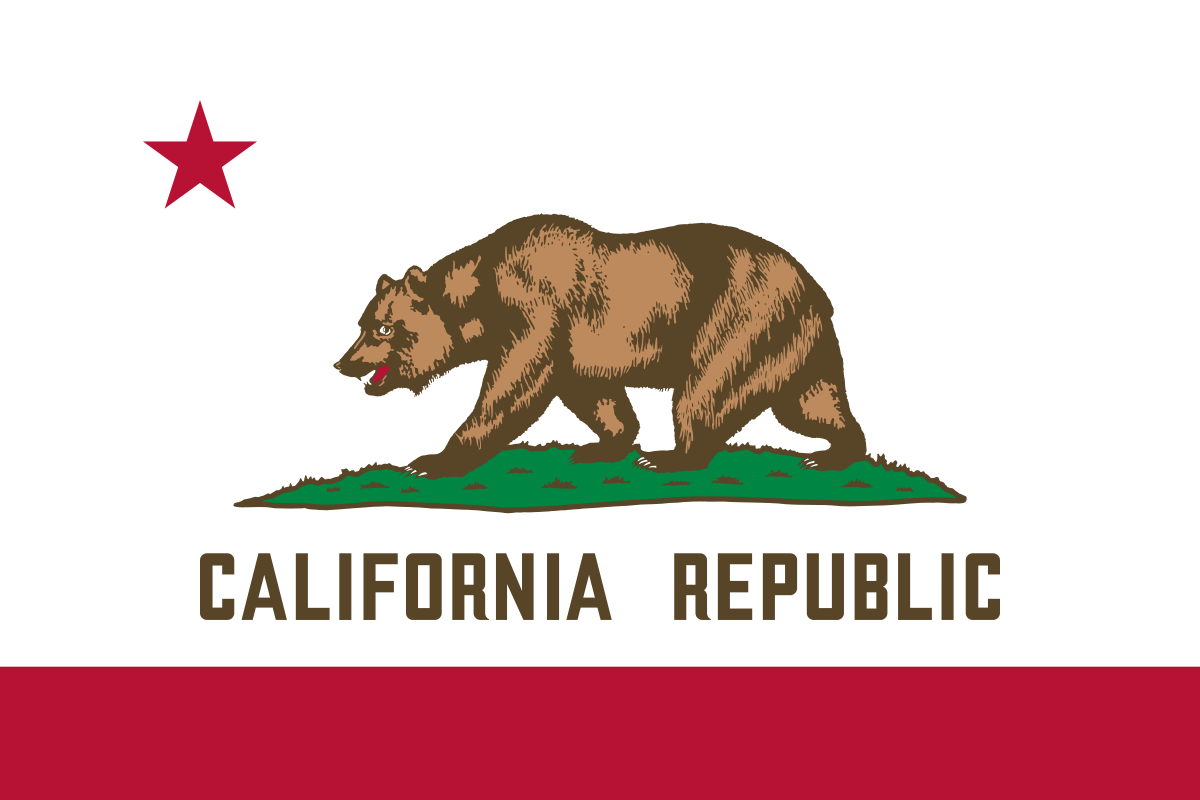As one who lives under the Augsburg Confession, I am bound not to be Lutheran. Wait a minute. What does that mean? What I mean is that there is a thing that has come to be called and identified as Lutheran that bears little resemblance to what our Confessions say we are. It is remarkable how quickly we have not only begun to talk about Lutheran
doctrine, Lutheran
liturgy, and Lutheran
piety. It is as if we no longer think of ourselves nor do we claim the faith of the Augustana that we have not departed from
catholic doctrine and practice. If that is true, then Lutherans have become the very thing their confessions abhor and are no longer a church at all but merely a sect. What the Reformation gave birth to was not another church among the many churches born of that period but the essential claim that the Roman Church then (and, I believe, still) has evolved away from and become something different than the
catholic church. It is not simply in a few doctrines (purgatory, sacrifice of the mass, papacy, etc.) but in its presumption that the church defined the Word and has an authority, identity, and power which is different from and above the marks of the Church in the Word rightly preached and the Sacraments rightly administered. The
tradition that Lutherans worry about is that tradition in which Scripture is not the center and beating heart but something else. Our claim in the Reformation and still is that we have not substituted one authority or tradition for another. Instead, we have held Scripture to be what Scripture is -- the efficacious and living voice of God still doing what the words say. But if we have invented and put in place of this living tradition our own institutionalized theology and identity, we have learned nothing from the Reformation and forsaken the very legacy bequeathed to us.
What am I talking about? When Lutherans have their own doctrine which is not the catholic doctrine of the ages, we have become what we complained about in the 16th century. When Lutherans begin theological history with our own iconic figures (Luther, Chemnitz, Walther, etc.), we create a churchly identity not envisioned by our confessional fathers. When we do this with liturgy and piety and an institutional structure which we define as Lutheran, we have only extended this rather sectarian view to the whole. I believe in the Lutheranism of our Confessions but I am concerned by the Lutheranism that we typically think of today. When we govern our communion with constitutions and bylaws because we no longer have a doctrinal and liturgical unity that flows from Scripture and is testified to in our Confessions, we have become a corporate identity but we have surrendered the character of church.
Politics are not our problem. Voting lists at conventions are not our problem. Seminaries are not our problem. Synod is not our problem. Financial viability is not our problem. Even a government increasingly unfriendly to the faith is not our problem. Our problems lie much deeper. Do our preachers in the pulpits and presiders at that altar and our people in the pews believe that we are, as the Augsburg Confession claims, the evangelical catholics who have restored what Rome lost and renewed a church life that had lost its way? Or, do we believe that Lutherans are a church in opposition to the evangelical catholicity of doctrine and practice, a denominational identity and structure with a birthday that marks are beginning as well as the time in which we cast off this catholicity to be something distinct from that catholicity? I fear that we are creating Lutheran people led by Lutheran pastors who can mark the beginning of their theology, liturgy, and piety to a date in the 16th century or the 19th century and who are content with this. That is not the faith that was proclaimed at Augsburg in 1530. It should not be the faith that is proclaimed in 2021.
I understand that jurisdictions have rules, regulations, and procedures. Of course they do. But these are not our identity. We cannot appeal to constitution and bylaws to solve doctrinal conflict and we cannot issue rules and regulations to solve liturgical disputes (such as, for example, the idea of online Holy Communion). When we appeal to institutional documents or rules as the governing word in these differences, we are acknowledging the poverty of our theological conversation and the lack of consensus about who we are as a church body and how we live within that body.
The evangelical catholic parish acknowledges with the most profound solemnity and yet with the greatest joy solus Christus, as Luther said, “The cross alone is our theology.” The evangelical catholic parish has a life and piety that flows from and back to the means of grace, the Word and Sacraments. The liturgical life of the evangelical catholic parish gladly acknowledges, even though it may not practice locally, the fuller ceremonial and rites of the church through the ages. The evangelical catholic parish refuses the principle that simpler is better when it comes to ceremony and rite or that our liturgical life is governed by economy rather than fullness. The evangelical catholic parish understands that Scripture is not simply an infallible book but a living voice -- the efficacious Word of God that works through this Word preached, read, and taught to do what says. The evangelical catholic parish puts the fullest prominence on the work of God in baptism to bring forth a new person created in Christ Jesus for new and everlasting life, for the good works that show forth this life, and for the Spirit work in the baptized to finish His new creation. The evangelical catholic parish encourages and calls the people of God to the blessing of private confession in which the conscience is set free, repentance is acknowledged, and the counsel of God's Word is applied to direct the life of the absolved. The evangelical catholic parish lives for and from the Table of the Lord where we kneel in adoration before and receive with faith the Crucified and Risen Lord who gives us His body in bread and His blood in wine. The evangelical catholic parish rejoices in the gift of the pastoral office in which men are set aside by Word and prayer and conferred with the authority of the Word and Sacraments within the whole church and in the local congregation -- an ordination which does not create a first class of Christians over and above the rest of the flock but fulfills the Lord's will and mandate to supply from that flock shepherds to feed His sheep. The evangelical catholic parish is always being formed and reformed by the Spirit working through the Word so that her confession of doctrine and witness before the world are constantly renewed without changing what is believed or confessed. The evangelical catholic parish takes most seriously who communes so that those communing may be examined and absolved and so thoroughly prepared to acknowledge and receive the Sacrament of the Lord's body and blood to their good and not to their harm. The evangelical catholic parish celebrates the voices of many teachers but knows the Scripture as that truth that governs all truths and norms the content of what we believe, teach, and confess. The evangelical catholic parish anticipates the heavenly future God is even now preparing us to receive within this moment of time in which the Spirit gathers us around the Word and Table of the Lord, in but not of the world. The evangelical catholic parish joyfully acknowledges the saints who have gone before, the martyrs who have washed their robes clean in the blood of the Lamb, and the cloud of witnesses even now surrounding the Church and bidding her to complete the race and rest from her labors. The evangelical and catholic parish celebrates the vocations supplied by the Lord in which we live together under Him, most especially the baptismal vocation to know the Lord and to live under Him the new life that is His gift, doing the good works that serve our neighbor and glorify Him (but which contribute nothing to the saving work already accomplish for us in Christ). In doctrine and life, the evangelical catholic parish looks like those of another era and time and bears common resemblance to those who follow, though the world around us is always changing, Christ yesterday, today, and forever the same. These are the things to which I have committed my ministry and it is this vision which embodies in life the confessional witness that has come to be known as Lutheran. I do not see Lutheranism as a reforming movement within the Church or the confessions of the various strains of Christianity to have equal weight or merit as expressions of what is catholic but Lutheranism as the voice for the evangelical and catholic faith and its life lived out within the congregation gathered with their shepherd around the Word and Table of the Lord. This is the genius of Lutheranism that preserved will flourish or forsaken will allow it to die as one more failed sect. And if that happens, we dare not lay the blame on the Lord but at our own feet. For we have been given a rich and gracious heritage, a legacy through the ages, that we will have squandered and wasted if we let Lutheranism forget its Confession and become merely a church body.















